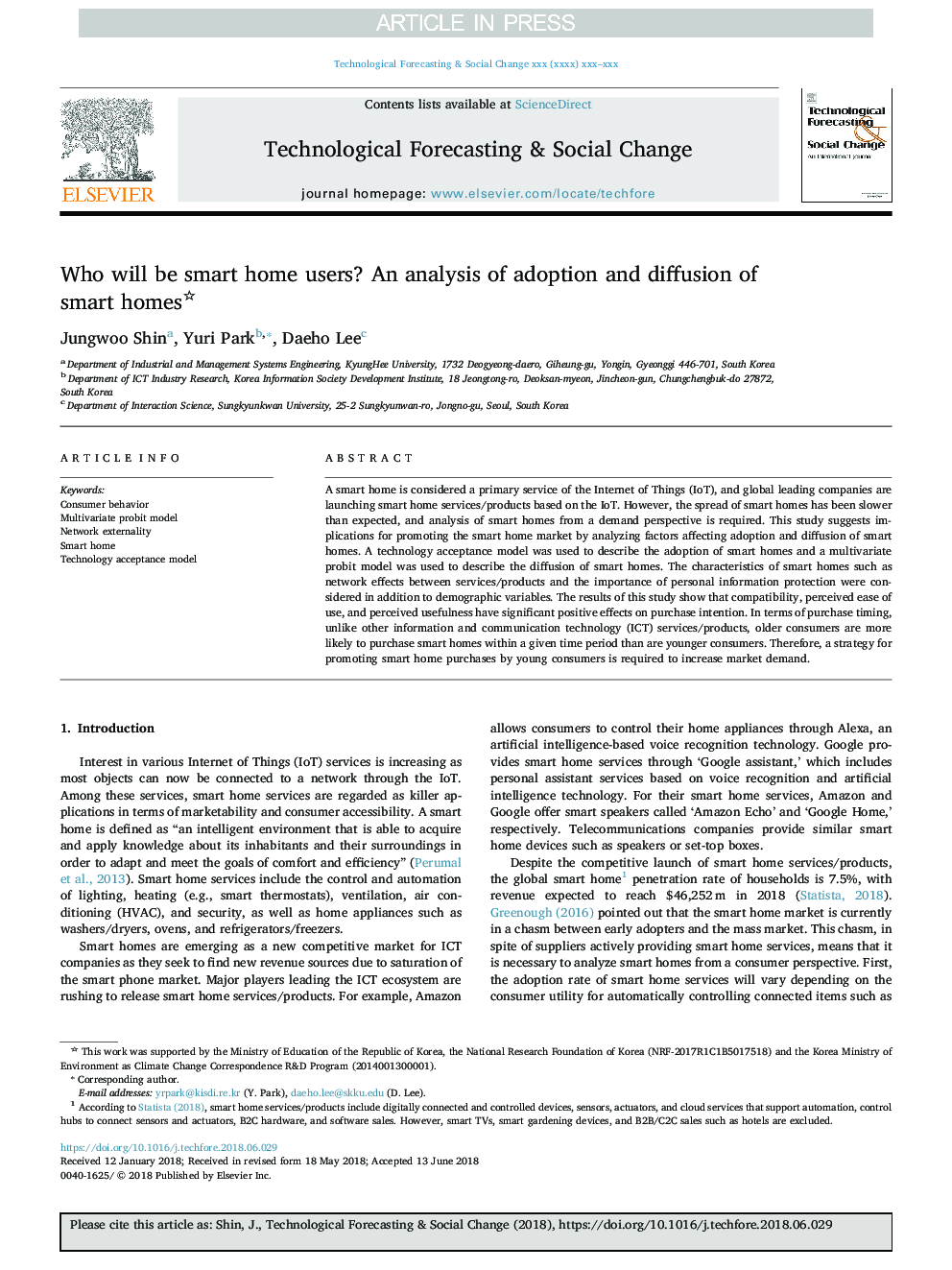| Article ID | Journal | Published Year | Pages | File Type |
|---|---|---|---|---|
| 7255171 | Technological Forecasting and Social Change | 2018 | 8 Pages |
Abstract
A smart home is considered a primary service of the Internet of Things (IoT), and global leading companies are launching smart home services/products based on the IoT. However, the spread of smart homes has been slower than expected, and analysis of smart homes from a demand perspective is required. This study suggests implications for promoting the smart home market by analyzing factors affecting adoption and diffusion of smart homes. A technology acceptance model was used to describe the adoption of smart homes and a multivariate probit model was used to describe the diffusion of smart homes. The characteristics of smart homes such as network effects between services/products and the importance of personal information protection were considered in addition to demographic variables. The results of this study show that compatibility, perceived ease of use, and perceived usefulness have significant positive effects on purchase intention. In terms of purchase timing, unlike other information and communication technology (ICT) services/products, older consumers are more likely to purchase smart homes within a given time period than are younger consumers. Therefore, a strategy for promoting smart home purchases by young consumers is required to increase market demand.
Keywords
Related Topics
Social Sciences and Humanities
Business, Management and Accounting
Business and International Management
Authors
Jungwoo Shin, Yuri Park, Daeho Lee,
